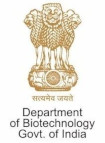Discussion Meeting on Conflict and Cooperation in Cellular Populations (CCCP 2020) - Speakers
| S. No. | Name | Talk Title |
| 1 | Chris Thompson (University College London) | TBA |
| 2 | Christian Kost (Osnabrück University) | Emergence of a multicellular life cycle speeds up evolution |
| 3 | David R Johnson (Eawag - Swiss Federal Institute of Aquatic Science & Technology, Dübendorf) | Bifurcations and the creation of pattern diversity during microbial spatial self-organization |
| 4 | E Peter Greenberg (University of Washington) | Mechanisms behind the math: quorum sensing control of bacterial cooperation |
| 5 | Emilie Søndberg (University of Copenhagen) | TBA |
| 6 | Glen D'Souza (ETH-Zurich) | Environmental nutrient composition dictates solitary to collective behavioural transitions in bacterial populations |
| 7 | Jan-Hendrik Hofmeyr (Stellenbosch University) | From mushrooms to isolas: surprising behaviour in a simple biosynthetic system subject to end-product inhibition |
| 8 | Kiran Raosaheb Patil (European Molecular Biology Laboratory, Heidelberg) | Polarization of microbial communities between competitive and cooperative metabolism |
| 9 | Laasya Samhita (National Centre for Biological Sciences, Bangalore) | The evolutionary potential of translation errors |
| 10 | Mariana Benítez (Universidad Nacional Autónoma de México, Mexico City) | Cellular differentiation and coexistence in bacterial multicellular aggregates |
| 11 | Namiko Mitarai (Niels Bohr Institute, Copenhagen) | Persistent coexistence of spatially distributed bacteria and phage |
| 12 | P. Jayadev Bhat (Indian Instittue of Technology, Bombay) | Melibiose utilisation in S. cerevisiae is a co-operative enterprise |
| 13 | Paul Rainey (Max Planck Institute for Evolutionary Biology, Plön) | Ecological scaffolding and the evolution of individuality |
| 14 | Punyasloke Bhadury (Indian Institute of Science Education and Research, Kolkata) | TBA |
| 15 | Ratnasri K (Indian Institute of Science, Bangalore) | TBA |
| 16 | Rupali Sathe (Indian Institute of Science Education and Research, Pune) | A community approach to vitamin B1 biosynthesis |
| 17 | Samay Pande (Indian Institute of Science, Bangalore) |
Cooperation and cheating among germinating spore |
| 18 | Sandeep Krishna (National Centre for Biological Sciences, Bangalore) | The chemical basis of metabolic interdependence |
| 19 | Sarahi L. Garcia (Stockholm University) | Model microbial communities: Understand niches, interactions and functional redundancy |
| 20 | Satoshi Sawai (University of Tokyo) | Collective migration in the parallel world |
| 21 | Sigal Ben-Yehuda (The Hebrew University of Jerusalem) | Bacterial nanotubes: conduits for intercellular molecular trafficking |
| 22 | Silvia De Monte (École NormaleSupérieure, Paris) | Heterogeneity in cell motility and the evolutionary emergence of aggregative multicellular life cycles |
| 23 | Sine Lo Svenningsen (University of Copenhagen) | Bacterial control of phage susceptibility and prophage induction by cell-to-cell signaling |
| 24 | Sriram Varahan (Institute for Stem Cell Science and Regenerative Medicine, Bangalore) | TBA |
| 25 | Sunil Laxman (Institute for Stem Cell and Regenerative Medicine, Bangalore) | TBA |
| 26 | Supreet Saini (Indian Institute of Technology, Bombay) | Study of metabolic cooperation, and its impact on speciation in yeast |
| 27 | Varsha Singh (Indian Institute of Science, Bangalore) | Foraging signal drives swarming in populations of starving bacteria |
| 28 | Vidyanand Nanjundiah (Centre for Human Genetics, Bangalore) | Many roads lead to Rome: microbial heterogeneity and group living |
| 29 | Wenying Shou (Fred Hutchinson Cancer Research Center, Seattle) | Artificial selection of microbial communities |
| 30 | Yuka Shirokawa (University of Tokyo) | Cell fate determination in the social amoeba Dictyostelium discoideum penalizes precocious reversion to solitary growth |

